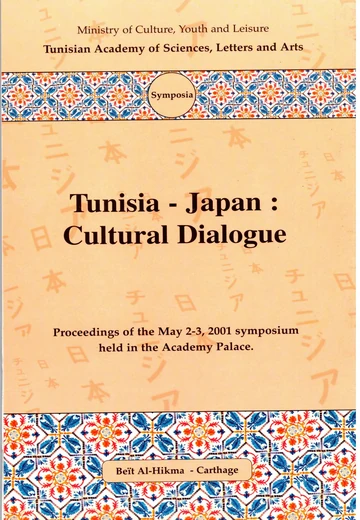Mots clés
Tunisia - Japon Cultural Dialogue
Détails de la publication
There is indeed a lot more in common between tunisia and japan. a japanese proverb goes (literally): "if you want to make provisions for one year, sow only one seed, if you want to make provisions for a generation, plant a tree, and if you want to make provisions for a century, then put your stakes on the human being!" this is to say that both countries are betting on the human being: having no natural resources, they only have to rely on the competence and know-how of their people. the interveners finally expressed their hope for the consolidation of the cultural dialogue between the two countries.
Préface
The symposium brought together a panel of japanese and tunisian researchers and academics and was an occasion to debate a certain number of issues. several interveners tried to explain what brings tunisia closer to japan: the nineteenth century in tunisia was marked by the advent of the «nahdha» (renaissance), a reformist movement initiated by the «fundamental covenant» (1857) and was enshrined in the promulgation of the constitution of 1861. the reformist movement was based on a parallelism between modernization and safeguarding our heritage. during roughly the same period, the renaissance of the meiji era in japan established itself along the same lines and enabled the country to enter into modernity. while the modernization process in tunisia was hindered by colonization, that did not prevent tunisia from reviving the reformist movement, right after independence (1956) and achieving substantial progress.
| Titre | ISBN | Volume |
|---|
| Titre | ISBN | Langue |
|---|

